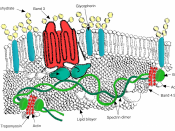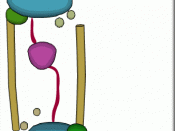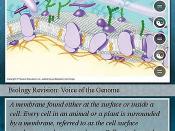In 1997, oldest person was 133 in France. In 2001, it was 122.
1776: Mean longevity was 35 years 1976: Mean longevity grew to 72 years 2001: Mean longevity in some nations, like Japan, has reached 80 years, but no the United States.
METHODS OF STUDYING AGING IN HUMAN POPULATIONS Horizontal: takes a group of people with something in common Longitudinal: takes a group of people and studies them over a longer period of time.
Many people leave the group.
Framingham Study: begun in 1948 in Massachusetts with 5209 people ages 30-59, men & women, added 5135 children of original subjects.
THEORIES OF WHY WE AGE 1. PROGRAMMED CELL DEATH: genetic, inherited, maybe there are "gerontogenes"ÃÂ that program aging. If there are gerontogenes, maybe mutations in these genes cause aging to occur at different rates.
APOPTOSIS: programmed cell death HAYFLICK'S NUMBER: said that cells divided a finite number of times, and then they die.
They divided about 50 times. He was dealing with cells in tissue culture in a glass bottle.
In a biological sense, SEXUAL REPRODUCTION involves exchange of genetic material between 2 different individuals.
MUTATION: a change in the genetic material METABOLISM: all chemical reactions that occur in a living cell/organism 2. NEUROENDOCRINE THEORY: endocrine system regulates by the secretion of hormones, and the nervous system relates electrical currents. They are our regulatory systems and so impact on aging.
3. WEAR & TEAR THEORY: as you use your body it begins to wear-out, and so it ages.
4. SOMATIC MUTATION THEORY: (Somatic cells are all cells in the body except for mature reproductive cells (having 46 chromosomes)). This theory supposes a change or mutation in our DNA.
5. DNA REPAIR THEORY: recognizes a change in the DNA, and so it repairs itself. As people age, it does...


